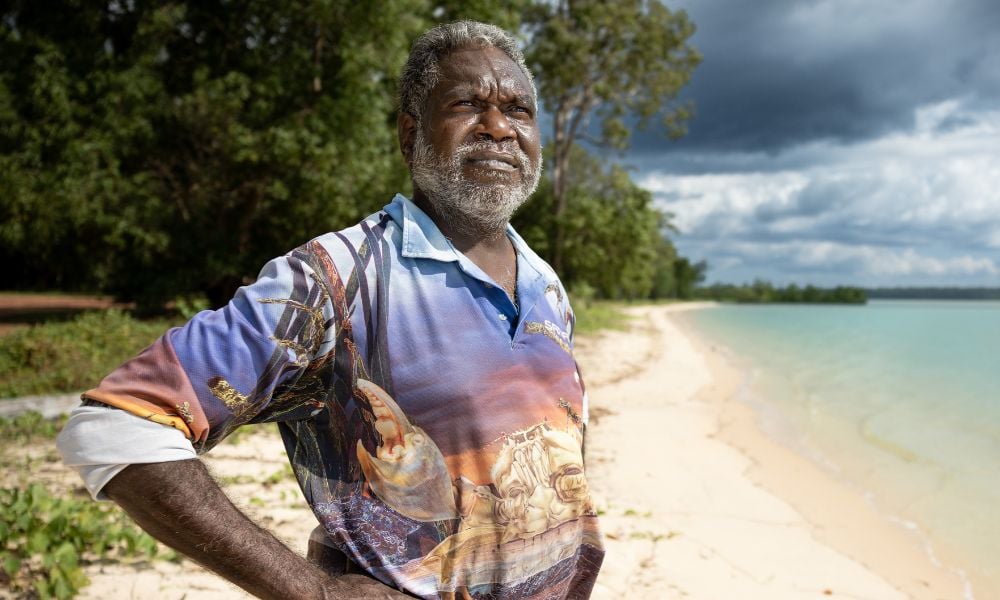
This is the first time for on-country evidence to be heard in a judicial review challenge

The Federal Court has begun hearing on-country evidence in a historic legal battle over the approval of a gas project in the Northern Territory.
The court travelled to Pitjamirra on Melville Island to hear cultural evidence from Tiwi traditional owners in relation to a lawsuit filed by Tiwi senior lawman Dennis Tipakalippa against the National Offshore Petroleum Safety and Environment Management Authority, the federal offshore gas regulator.
Tipakalippa sued the federal regulator over the approval of Santos Limited’s Barossa gas project, which involves the drilling of gas production wells approximately 120km north of the Tiwi Islands in the Northern Territory. He is being represented by the Environmental Defenders Office (EDO).
“Mr. Tipakalippa will argue that Santos failed to provide him and his community with the opportunity to have a say about this drilling despite the stakes for their culture and way of life,” EDO special counsel Alina Leikin said. “The decision of the Federal Court to hear evidence on the Tiwi Islands in this case means a great deal to the Munupi community.”
Environment Centre NT confirmed that this is the first time for on-country evidence to be heard in a judicial review challenge, as well as for First Nations people to legally contest an offshore project approval due to lack of consultation.
“The case being brought by Tiwi traditional owner Dennis Tipakalippa is of immense historical, cultural, and environmental significance,” Jason Fowler, Environment Centre NT energy campaigner. “The on-country hearing will provide a way for Mr. Tipakalippa and other Munupi witnesses to communicate the cultural and spiritual impacts that will be caused by Santos’ fossil fuel project if it continues.”
After the on-country hearing, the court will move to Darwin to hear the rest of the proceedings from August 23 to 26. Meanwhile, a solidarity action with Tiwi people will take place on 24 August and see Darwin residents, Tiwi elders, and federal and local parliament members gather in front of Parliament house.